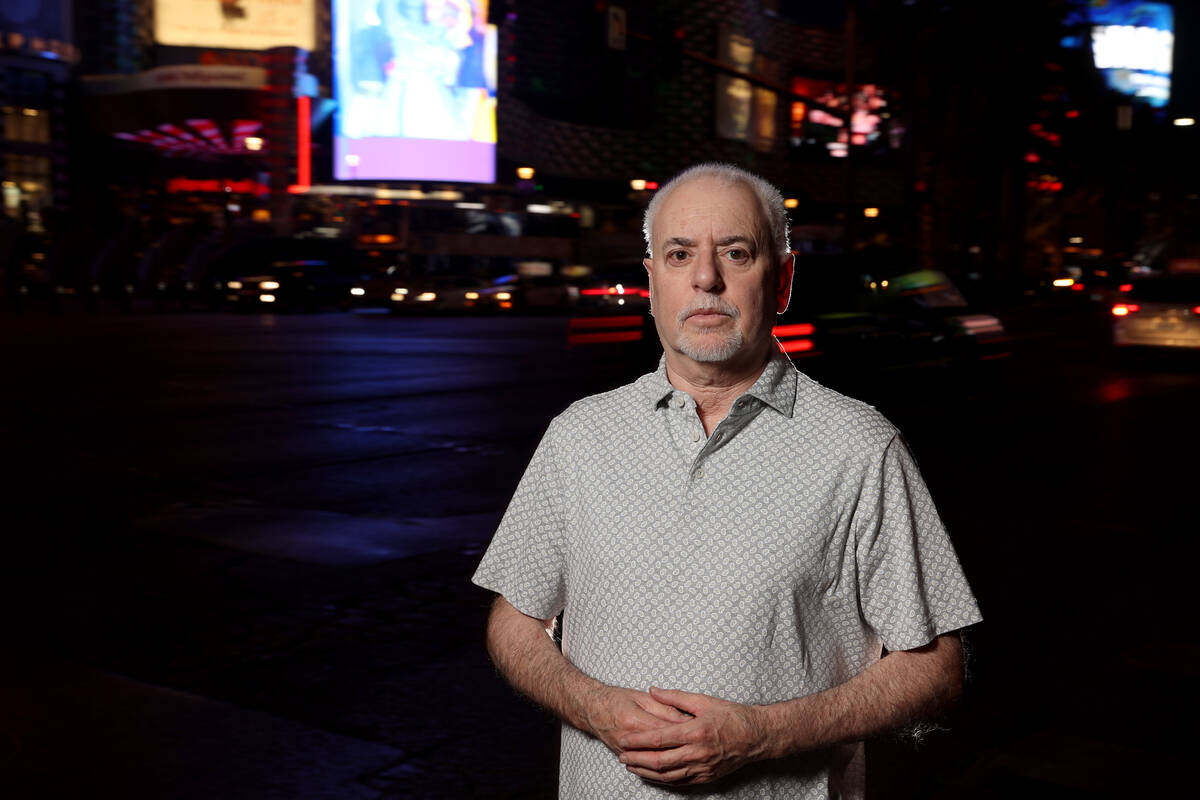Nevada Supreme Court protects phone, computers of slain reporter
The Nevada Supreme Court has moved to protect slain Las Vegas Review-Journal investigative reporter Jeff German’s personal devices in an order released Thursday, which calls for a third-party team to search his journalistic materials as part of the investigation into his murder.
The justices also wrote that Nevada’s shield law, which protects journalists from forcibly disclosing sources, continues to apply after a reporter’s death. To rule otherwise would “be directly contrary to the statute’s purpose,” according to Thursday’s order, which was signed by justices Elissa Cadish, Kristina Pickering and Linda Bell.
German was fatally stabbed outside his home on Sept. 2, 2022. Former Clark County Public Administrator Robert Telles, a low-level elected official who German had written about in the months before he was killed, was arrested shortly after and accused of killing German in anger over the reporter’s articles.
Metropolitan Police Department officers seized German’s cellphone and five of his personal computers from the crime scene and his home. The Review-Journal has since been fighting to prevent officials from searching the devices, which may contain information about German’s confidential sources, including those who may have worked for Metro or the district attorney’s office.
The Supreme Court on Thursday also ruled that Nevada’s return of property statute applies to “any party ‘aggrieved,’” and does not require the party to hold ownership of the disputed materials. Metro has argued officials have the right to search through German’s information after his death because the Review-Journal did not own the personal devices he used to report.
“The Nevada Supreme Court has firmly upheld the press protections that allowed Jeff German to become one of the best-sourced, most-trusted journalists in the state,” Review-Journal Executive Editor Glenn Cook said Thursday.
“Most importantly, the court ruled that Nevada’s statutory shield for newsgathering materials and confidential sources does not die when a reporter is killed. And the court also clearly held that allowing Metro and the district attorney to review materials to decide for themselves whether press privilege applies is like the fox guarding the henhouse.”
‘Constitutional rights are at issue’
The justices rejected a proposed protocol to search the devices that was approved by District Judge Michelle Leavitt. The protocol mirrored a plan suggested by Metro’s lawyers, and allowed for the devices to be searched by two detectives and the two prosecutors on the case.
The shield statute is not absolute “when a defendant’s countervailing constitutional rights are at issue,” the Supreme Court ruled. But because authorities would have been able to review the devices before the Review-Journal, the proposed protocol would be “irreparably destroying any privilege the Review-Journal may have.”
The justices instead remanded the case back to District Court, and called on the lower court to implement the Review-Journal’s plan to have the devices searched by a taint team comprised of former U.S. Magistrate Judge Peggy Leen and former Clark County District Attorney David Roger.
Metro’s lawyers have argued the devices need to be searched for evidence that could both help prosecutors and aid in Telles’ defense. Telles is representing himself, and filed paperwork last week requesting a delay in his upcoming trial, in part because he has not received information from German’s devices.
The Supreme Court’s ruling preserves the portion of the lower court’s order that laid out the procedure for resolving disputed claims over information that may be found on the devices. The protocol approved by Leavitt allows for the Review-Journal to dispute relinquishing the newspaper’s rights over the privileged material, and allows for disputes to be adjudicated by the judge.
The justices also denied a petition from the Review-Journal on Thursday, in which the newspaper asked the Supreme Court to impose sanctions on Metro for searching through German’s phone, which Metro attorney Matthew Christian has stated was done in the “immediate aftermath of finding the body.”
Although Metro had stated in written communication and during court hearings that German’s devices had not been searched, unredacted copies of police search warrants released in November showed that police identified Telles as a person of interest “utilizing LVMPD records, video surveillance, and legally obtained data from German’s phone.”
Leavitt denied the Review-Journal’s request for sanctions against Metro in January. Supreme Court justices wrote in Thursday’s order that “we are not persuaded that our extraordinary and discretionary intervention is warranted.”
Telles has pleaded not guilty to a murder charge, and has maintained that what prosecutors have called “overwhelming evidence” against him was planted at his home. He remains in the Clark County Detention Center without bail.
A previous version of this story misstated which statute applies to the ownership of disputed materials.
Contact Katelyn Newberg at knewberg@reviewjournal.com or 702-383-0240.



















